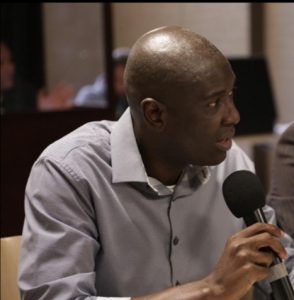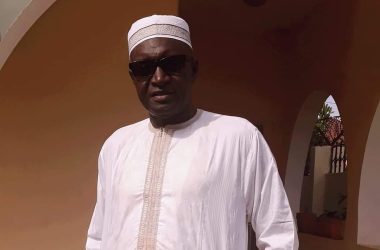
Shame has been defined as “a painful feeling of humiliation or distress caused by the consciousness of wrong or foolish behavior.”
It is also defined as: “a regrettable or unfortunate situation or action.”
I recently saw a Camara granny of mine ask why do men get angry when they propose to a woman and she rebuffs their proposal? Is it just mere anger? Is it it the shame of rejection? Is it our pride that is bruised? Or is it a combination of all three combined and manifested through anger? Shame masquerading as anger? I would think that on some level, some of us men build ourselves into believing that when we tell Isatou or Fanna that we are interested in her, she would welcome the idea. The factors that lead to that conviction could be as foolish as they could be genuine fondness for Isatou or simply, our “mighty” status as a “man” and the sense of entitlement that comes with it.
On the flip side, I guess some women also take pride in saying that “so and so chased me and I refused.” Especially if “so and so”is an “important” person! I’ve never heard anyone brag that a nobody like Njundu chased them and they refused. That’s nothing to take pride in.
But what is the relationship between shame and pride? If you listen to old Mandinka songs, you’ll often hear them say “someone is in the Lakira but that they’re not there in SHAME”! You may have also heard of the story where a certain Fula was given the choice of DEATH and SHAME and he picked DEATH over shame. Meaning, he would rather die than face shame. You hear proverbs like: Bëut bu rusul, toj or Gàche bu reyul semmal.
While unlearning, I am learning not to put too much premium in certain theories that pigeonhole “African” cultures in any particular categories. But even where I accept the generalities of these theories, I’m mindful of the perspective they are couched in, especially as it relates to the works of missiologists who may see us with eyes we have never at looked at ourselves with.
A while back, I come across the concept of world-views in cultural anthropology, and its delineation of culture into three main categories: “Guilt-innocence”, “Shame-honor” and “Fear-Power”. Below is a watered down synopsis of what these cultures stand for as I understand.
The Global West is often classified as a GUILT-INNOCENCE culture because it is individualistic and tends to rely on punishment for self regulation. The fear of punishment is said to be what usually regulates people’s behavior.
The Asian cultures are often classified as a SHAME-HONOR culture because transgressors of the value system are often shamed for not aligning their actions with general expectations of society.
And then you have the FEAR-POWER cultures which is often marked by a fear of evil and harm from spirits, gods etc. And you can guess which cultures are classified thusly! “African”! As if Africa consists of one unvaried people!
Bringing these concepts home to our Gambia, I would like to think that for our great-grandfathers, going by the prevailing sentiments on shame in their days, were more a Shame-honor culture. Meaning, the Fula is said to have to picked death because he would rather die than be put to shame. Malu Ballo is perhaps one of the biggest insults you can heap on someone in Mandinka. Malbalyaa is a complete lack of shame and something you are better off not calling someone. Likewise in Fula, if you tell someone “Ar herrsehtta”, you have seriously insulted them because you just told them they have no shame. You hear Gàche bu reyul semmal. Tell an elder Doy Russ and see how they react. The Bamana saying goes that “if you find a man in trouble, leave him to it for he will figure it out; but if you find a man in shame, get him out of it because otherwise he might die of shame.”
Given the premium that our forefathers placed on shame and honor, when did we morph from worrying about the shame we bring to our family and community to worrying about not getting caught when we transgress? We are not ashamed of the transgressions; we are only concerned about getting caught. And by transgress I mean, when our hypocrisy is laid bare or when we steal, or rape, or engage in corrupt practices?
The fear of punishment is what often stops many of us from doing bad things; not the honor of not doing bad! What happened to guarding our honor? We’ve seen how Yaya and his band of evil men and women bastardized the judiciary and prison system.
We saw what happens to those who “transgress” against the expectations of society! Is punishment through the prison system the best way to deal with transgressors? Where does honor and shame come into play? I know some of the thieves some of us embrace got serious internal issues and far be it from me to go after someone with an illness, but jeez, must we also promote shamelessness?
How did we go from picking death over shame to the shamelessness we exhibit when we steal from our people, fail our promises, the shameless lust for fame and power, the duplicity in the name of politics? When did it become ok to be a thief and build mansions with high walls when everyone knows you’re a thief? What happened to shame and honor as deterrents? When did it become ok to be so shameless in our pursuit of wealth and fame and power? What happened to shame? Did shame and honor commit suicide in some of us? How can we embrace in ourselves what we despise in others? What happened to shame?




